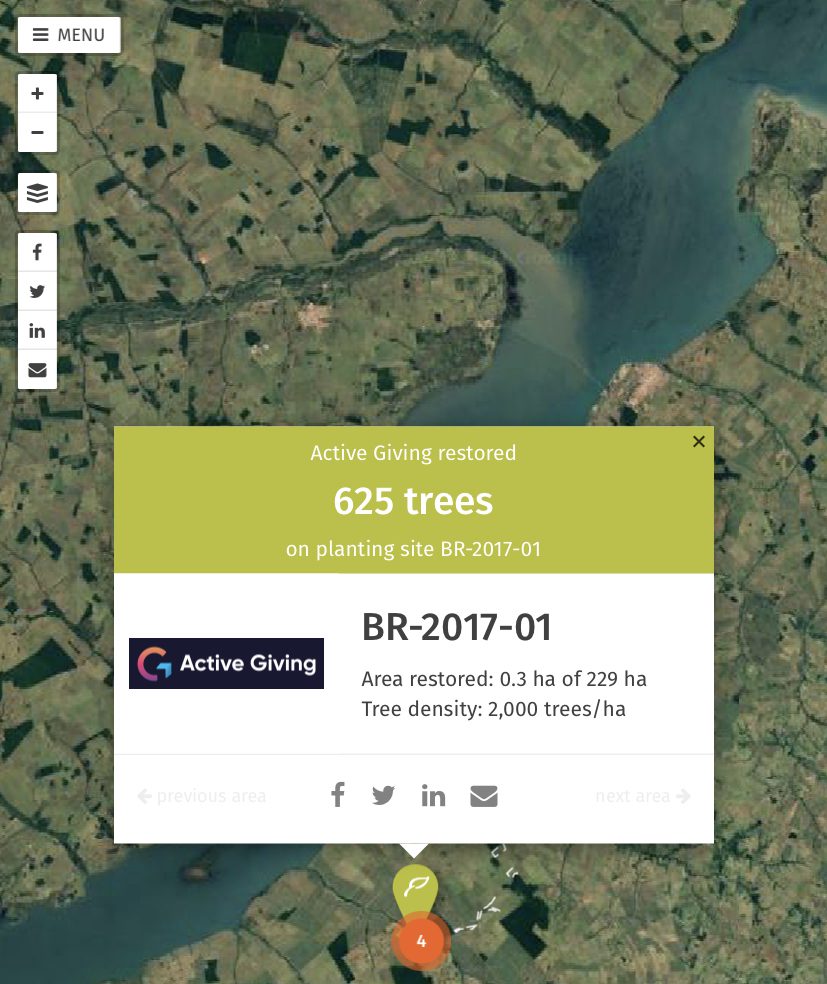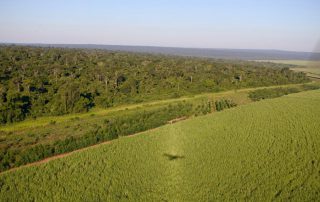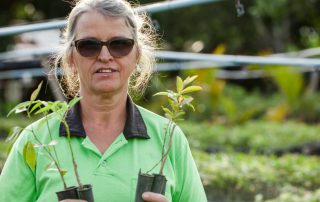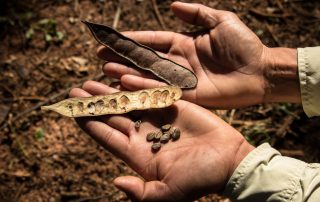The Active Giving first 625 trees planted with our partner We Forest are already registered as restored in their project “Brazil, wildlife corridors” located in the Atlantic Forest.
The Atlantic Forest has been reduced to green fragments due to unsustainable agriculture. This has affected the rich biodiversity in the area.
We are very thankful for all our Active Givers who have chosen to support We Forest.
Why is intervention needed?
Though the Atlantic Forest used to be 6 times the size of the United Kingdom, it is now only a forest in name. Over the course of 20 years, it has lost over 80% of its original forest cover due to agricultural expansion. No other large tropical forest has suffered this much loss.
Ecological restoration
In order to boost the forest recovery, We Forests combine several restoration methods (i.e. assisted natural regeneration, framework species approach and farmer-assisted reforestation) which are chosen based on land ownership, level of degradation and the amounts of seeds present in the degraded soil. Agroforestry, yet another system, is also used when farmers are eager to directly improve their diet or grow their income.
Livelihood development
We Forest will win this battle against deforestation when people start making a living from restoring and protecting forests and not from cutting the trees. Community-based nurseries around the restoration sites are a good example and are ran by local female entrepreneurs. This allows them to become financially independent. Transplanting the produced seedlings to the final planting site provides another opportunity for income: members of the Brazilian Landless Workers Movement (Movimento dos Trabalhadores Rurais Sem Terra) are hired and learn valuable skills to finally make a decent living. Various trainings in forestry techniques are provided to the people of the community several times during the year.
A growing Team
Together with their local partner We Forest employ 25 people, working in the 8 community nurseries.





